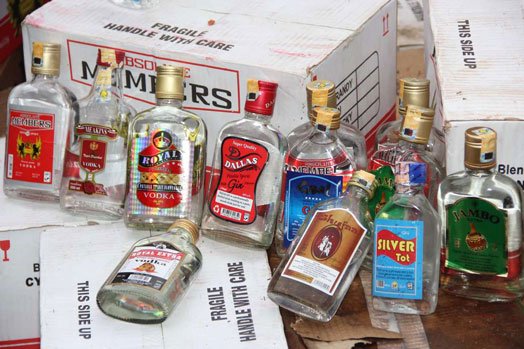Independent researchers have now red-flagged Kenya’s capital Nairobi City as the headquarters of junk foods and cheap liquor.
If you walk in any of Nairobi Estates, everyday regular businesses like salons, stalls selling new and second-hand clothes, grocery stores, and fruit shops are being replaced by chips vendors and liquor stores.

According to Nairobi County liquor board CEO Hesbon Agwena, the number of wines and spirits shops licensed in Nairobi in 2020 has increased 274 percent compared to previous years.
In 2020, a total of 1,648 liquor stores were registered in Nairobi alone compared with 440 in 2019 and 430 in 2018. It all started when Covid-19 first hit the country last year and Kenyans were confined to their homes to help reduce the rate of infection.
Enterprising Kenyans snapped up the opportunity that came with millions staying mainly indoors with practically little or nothing to do. To kill time, many turned to drink more alcohol. When bars and clubs were forced to close earlier than usual left thirsty Kenyans to seek alternatives.
Pavements in estates were turned into barazas by young men and women where they would meet up in the afternoon to drink alcohol until after curfew hours. Open grounds were also filled with cars as ‘park and chill’ became the new flavour of the month.
In constituencies, Starehe had the highest number of registered liquor stores (88), followed by Roysambu (48), Lang’ata, and Dagoretti North (35 each).
Westlands added 29, Ruaraka six, Mathare 11, Makadara 18, Kibra 14, Kasarani 32, Kamukunji 13, Embakasi West 32, Embakasi South eight , Embakasi North five, Embakasi East 21, Embakasi Central 15 and Dagoretti South 30.

Most revelers have also switched from beer to spirits because of their apparent affordability in liquor stores.
“The curfew imposed by the government might have helped stop the rapid spread of Covid-19 but it has left us with a much bigger problem, alcoholism,” says Susan Mwende, a resident of Tumaini estate in Embakasi South.
Day drinking, she said, has become acceptable because of the night curfew. Financial results published by East African Breweries Ltd (EABL) for the year, July 2020 to June 2021, showed the drinking of spirits by Kenyans increased by 24 percent.






















